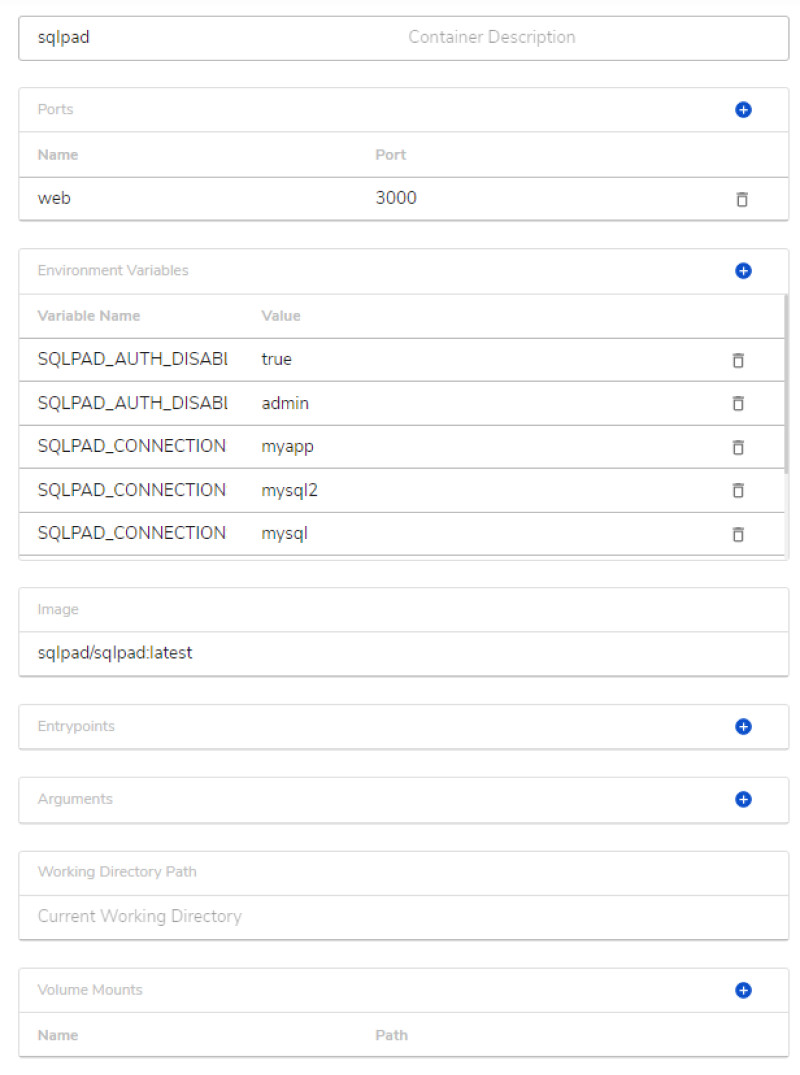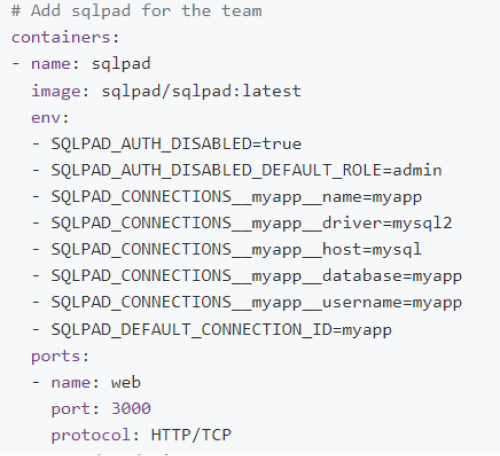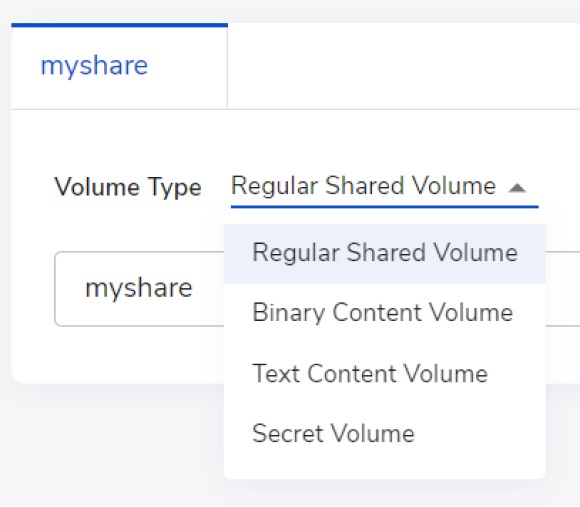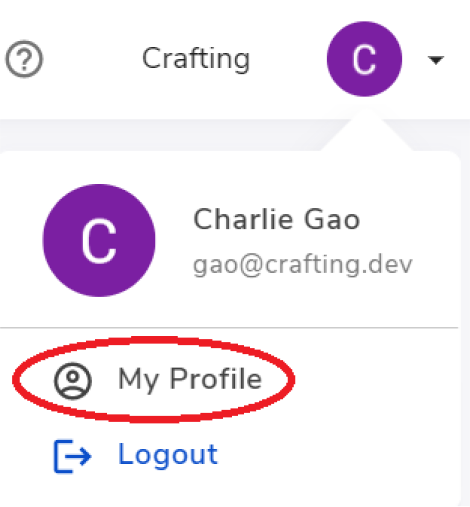Custom Containers in Crafting Sandbox
Ability to use custom containers is very useful in building up a dev environment. With Crafting Sandbox, you can run your workspace and dependencies alongside custom containers.
Creating Custom Containers
You can add custom containers to run alongside your workspaces and dependencies in Crafting Sandbox. To configure a container workload, open your app's configuration page and click `+` under "Containers" to add any container workload, and configure it as shown below:

Similarly to Docker-compose, you can customize the container in Yaml format.

Tips on using Workspaces, Containers, and Dependencies
Workspaces, Containers, and Dependencies are different types of workloads supported in Crafting Sandbox. They can be summarized as follows:
Workspaces: Workspaces are utilized to host the services being developed by the team. These services are built from the source code pulled from Git repo, run as daemon's based on repo manifests. It offers flexible customization and strong development support.
Dependencies: Dependencies are used to host the commonly used standard services such as MySQL, Postgres, Redis, etc., built-in by Crafting for users to add easily, allowing minimal customization, and no development support
Containers: The containers are used to host the services pre-packaged as container images. It offers flexibility in customization, but minimal support for development.
Containers are often used in following scenarios:
To add more customization of standard services, e.g., a special version of Postgres, etc.
To enable dependencies currently not supported by Crafting, e.g., CockroachDB, etc.
To reuse in-house artifacts in different projects, e.g., a specific version of service X built by team A, used as dependency for the Crafting Sandbox application used by team B and more…
Sandboxes support the following container workload functionalities:
Log Viewing: Logs generated by container workload can be viewed the same way as workspace logs
Exec: `cs exec` can run any commands inside the container
Port forwarding: `cs port-forward` can forward ports of containers the same way as for workspaces
Keep in mind that `cs ssh` can't be used for containers, we recommend using `cs exec` to run the commands.
To learn more about how to build, upload, configure, run/debug containers in the Crafting Sandbox App, please refer to our documentation by clicking on “Learn more” below.
Additional Features

Shared Volume for Containers
You can create different types of shared volume on App level and use them in container workloads.

Profile Page
Your profile page now allows you to access your user profile information and to change your display name.
May 2, 2022
